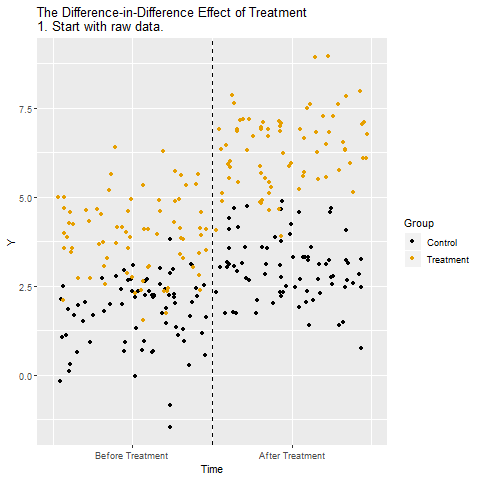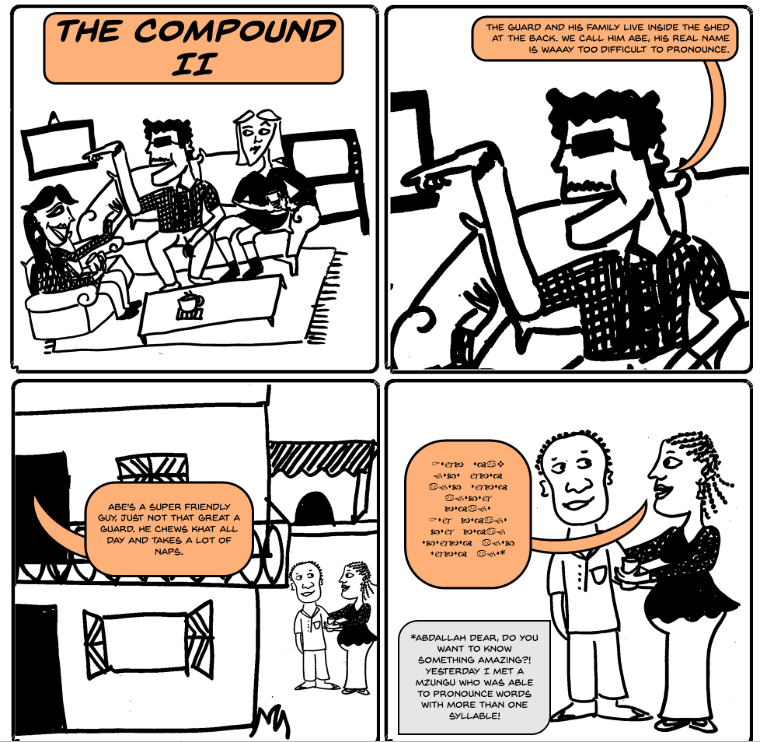Summary:
Guest post by Jeff Mosenkis of Innovations for Poverty Action The animation above comes from a cool page of causal inference animations by Nick Huntington-Klein (h/t Alex Tabarrok), which go through, step-by-step with scatterplots, how different methods work. Alex was one of many who offered helpful tips for getting through undergrad econometrics. Call for papers for the Y-Rise conference Dec 15-21 on the science of scaling promising interventions. They have research networks looking at broad questions (Political Economy; Evidence Aggregation/External Validity; Macro, Growth, & Welfare Effects of Policy Interventions; and Spillovers, Network & Equilibrium Effects), as well as working groups on three promising intervention areas (seasonal poverty, informational failures, and improving
Topics:
Jeff Mosenkis (IPA) considers the following as important: amazon.com, anthropology, cartoons, causal inference, comedy, development, Economics, humor, links, miscellany, news, Nigeria, podcast, podcasts, Research, statistics
This could be interesting, too:
Guest post by Jeff Mosenkis of Innovations for Poverty Action The animation above comes from a cool page of causal inference animations by Nick Huntington-Klein (h/t Alex Tabarrok), which go through, step-by-step with scatterplots, how different methods work. Alex was one of many who offered helpful tips for getting through undergrad econometrics. Call for papers for the Y-Rise conference Dec 15-21 on the science of scaling promising interventions. They have research networks looking at broad questions (Political Economy; Evidence Aggregation/External Validity; Macro, Growth, & Welfare Effects of Policy Interventions; and Spillovers, Network & Equilibrium Effects), as well as working groups on three promising intervention areas (seasonal poverty, informational failures, and improving
Topics:
Jeff Mosenkis (IPA) considers the following as important: amazon.com, anthropology, cartoons, causal inference, comedy, development, Economics, humor, links, miscellany, news, Nigeria, podcast, podcasts, Research, statistics
This could be interesting, too:
Lars Pålsson Syll writes Schuldenbremse bye bye
Lars Pålsson Syll writes What’s wrong with economics — a primer
Lars Pålsson Syll writes Krigskeynesianismens återkomst
Lars Pålsson Syll writes Finding Eigenvalues and Eigenvectors (student stuff)

Guest post by Jeff Mosenkis of Innovations for Poverty Action
- The animation above comes from a cool page of causal inference animations by Nick Huntington-Klein (h/t Alex Tabarrok), which go through, step-by-step with scatterplots, how different methods work. Alex was one of many who offered helpful tips for getting through undergrad econometrics.
- Call for papers for the Y-Rise conference Dec 15-21 on the science of scaling promising interventions. They have research networks looking at broad questions (Political Economy; Evidence Aggregation/External Validity; Macro, Growth, & Welfare Effects of Policy Interventions; and Spillovers, Network & Equilibrium Effects), as well as working groups on three promising intervention areas (seasonal poverty, informational failures, and improving agricultural extension). Submission deadline Oct 2.
- Bloomberg has an article and short video following a driver for Jumia, Nigeria’s equivalent of Amazon.com. One commonality between Jumia and Amazon’s private delivery network in the U.S. seems to be high pressure and risk shifted from the firms onto the drivers.
- Here are two good econ and two non-econ but fun podcasts:
- The St. Louis Fed Women in Economics Podcast (Apple), interviewed Anna Opoku-Agyeman and Fanta Traore about their work with the Sadie Collective, which gets more black women involved in Economics (one sobering statistic I learned, in 2017 seven out of 1,150 Ph.D.s in economics awarded were to black women.)
- Today, from NPR Planet Money’s The Indicator (Apple), the fascinating life of economist Edith Penrose. She helped colleagues escape the Nazis in Europe, worked with Eleanor Roosevelt on the Universal Declaration of Human Rights, earned a Ph.D. in Economics in 1950, and later ended up in Baghdad studying the oil industry. Penrose’s understanding of firms as dynamic creative organizations advanced how economists think about how businesses grow. You can read more in Tyler Cowen’s review of her biography.
- Dave Chang (the chef behind Momofuku) has an interview podcast, I enjoyed one from a few months ago interviewing Michael Shur (Apple), who’s behind the TV show The Good Place (as well as Parks and Rec and The Office), about making ethics and philosophy funny and appealing to a broad audience (and lots of other stuff in their lives).
- NPR’s Rough Translation (Apple) is one of my favorites, The Man Who Sedated Eichman (Apple), is about the late anesthesiologist who sedated Adolph Eichman to be kidnapped out of Argentina and stand trial, and why he refused to ever talk about it (it’s more complicated than you might think).
- And a fun web cartoon, Mzungus in Development and Governments, is a satirical look at expat researchers and development workers, I couldn’t pick just one frame but it’s well done. After you’re done reading what’s already up there, you can subscribe by email for updates, or follow the adventures on twitter & Facebook. Make sure to share it in your expat FB groups).

